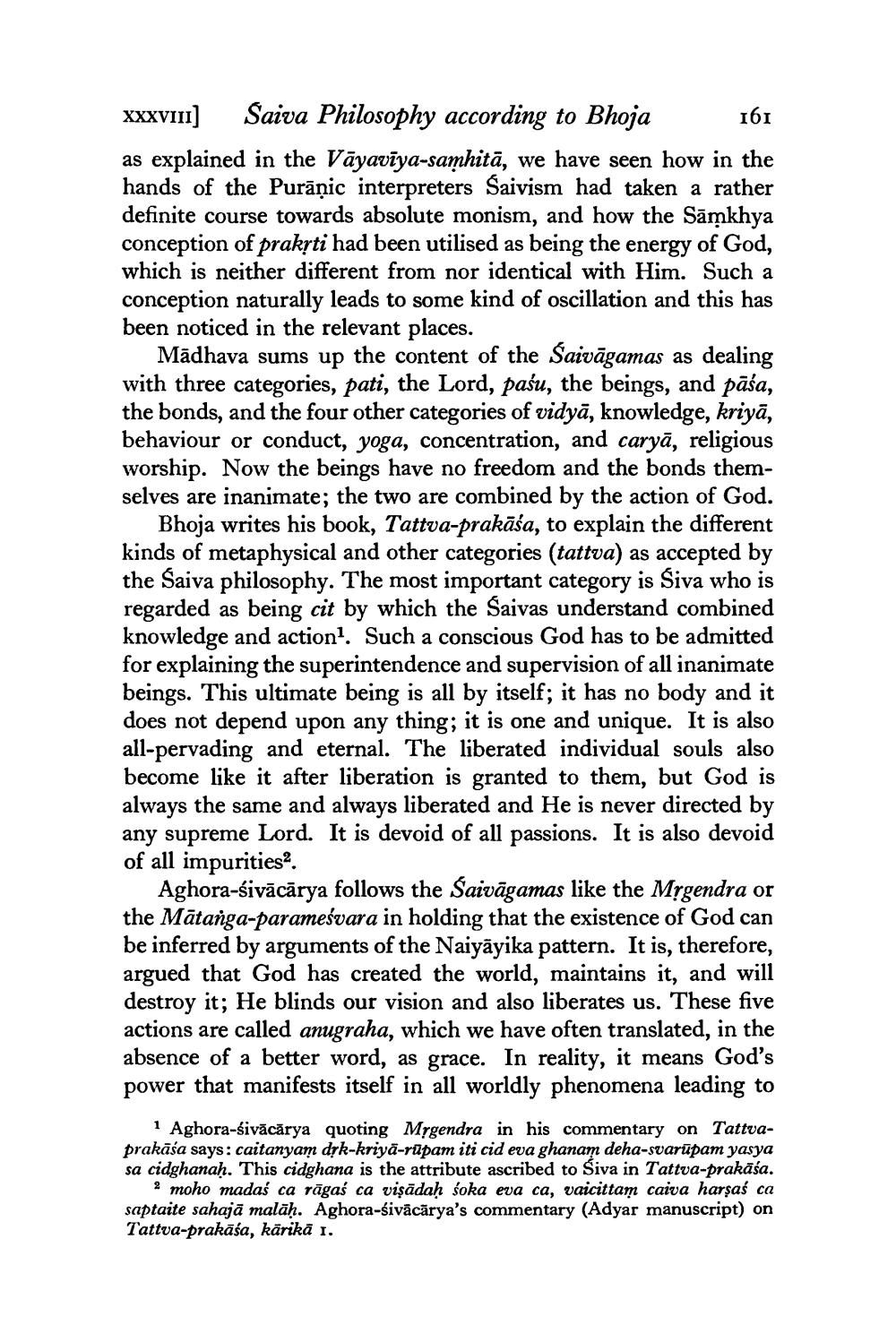________________
16
XXXVIII] Saiva Philosophy according to Bhoja as explained in the Vāyavīya-samhitā, we have seen how in the hands of the Purāņic interpreters Saivism had taken a rather definite course towards absolute monism, and how the Sāmkhya conception of prakrti had been utilised as being the energy of God, which is neither different from nor identical with Him. Such a conception naturally leads to some kind of oscillation and this has been noticed in the relevant places.
Mādhava sums up the content of the Saivāgamas as dealing with three categories, pati, the Lord, pašu, the beings, and pāśa, the bonds, and the four other categories of vidyā, knowledge, kriyā, behaviour or conduct, yoga, concentration, and caryā, religious worship. Now the beings have no freedom and the bonds themselves are inanimate; the two are combined by the action of God.
Bhoja writes his book, Tattva-prakāśa, to explain the different kinds of metaphysical and other categories (tattva) as accepted by the Saiva philosophy. The most important category is Siva who is regarded as being cit by which the Saivas understand combined knowledge and action?. Such a conscious God has to be admitted for explaining the superintendence and supervision of all inanimate beings. This ultimate being is all by itself; it has no body and it does not depend upon any thing; it is one and unique. It is also all-pervading and eternal. The liberated individual souls also become like it after liberation is granted to them, but God is always the same and always liberated and He is never directed by any supreme Lord. It is devoid of all passions. It is also devoid of all impurities.
Aghora-śivācārya follows the Saivāgamas like the Mrgendra or the Mātanga-parameśvara in holding that the existence of God can be inferred by arguments of the Naiyāyika pattern. It is, therefore, argued that God has created the world, maintains it, and will destroy it; He blinds our vision and also liberates us. These five actions are called anugraha, which we have often translated, in the absence of a better word, as grace. In reality, it means God's power that manifests itself in all worldly phenomena leading to
1 Aghora-śivācārya quoting Mrgendra in his commentary on Tattvaprakāśa says: caitanyam drk-kriyā-rūpam iti cid eva ghanam deha-svarūpam yasya sa cidghanaḥ. This cidghana is the attribute ascribed to Siva in Tattva-prakāśa.
? moho madaś ca rāgaś ca visādah boka eva ca, vaicittam caiva harşaś ca saptaite sahajā malāḥ. Aghora-śivācārya's commentary (Adyar manuscript) on Tattva-prakāśa, kārikā i.




